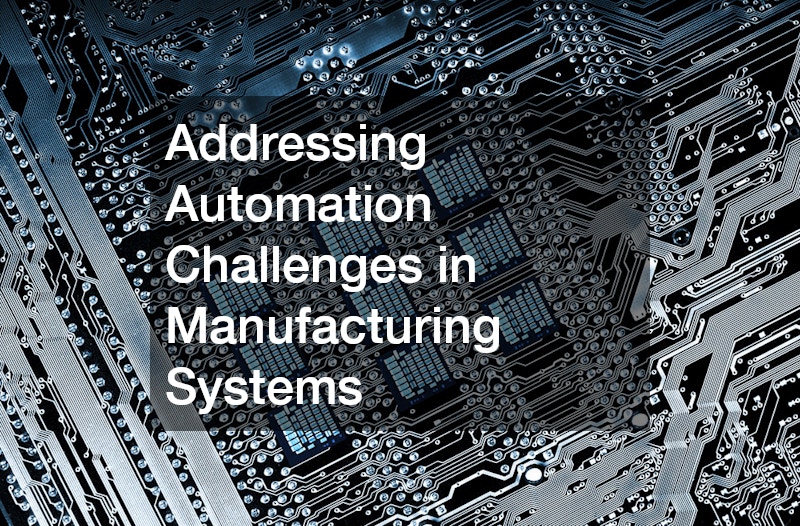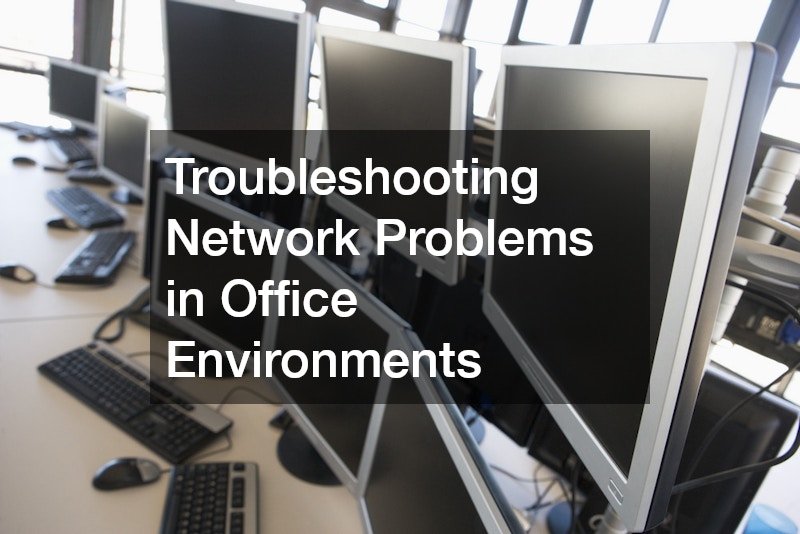
Introduction
In today’s business world, technology plays a central role in daily operations, from automating production to managing client communications. While computers have significantly improved efficiency, they also come with challenges that can disrupt workflow and hinder productivity. Whether businesses rely on specialized software, high-tech security systems, or digital transactions, encountering technical problems is inevitable. From network failures to system crashes, these common issues with computers can lead to costly downtime and frustration for business owners and employees. Understanding the root causes of these problems and how to address them can help companies maintain smooth operations and avoid long-term disruptions.
One of the primary reasons businesses face computer issues is the increasing complexity of technology. Many industries use specialized software and equipment that require regular maintenance and updates to function correctly. Without proper upkeep, outdated programs, compatibility errors, and hardware failures can slow down production and reduce efficiency. Cybersecurity threats also pose a major risk, as data breaches and malware attacks can compromise sensitive business information. By staying informed about common issues with computers and implementing proactive solutions, businesses can ensure their technology remains reliable and supports their long-term success.
Addressing Automation Challenges in Manufacturing Systems

As automation becomes more prevalent in manufacturing, businesses must rely on advanced computer systems to maintain efficiency and precision. Automated processes, such as those used in a robotic fabrication service, require highly specialized software and hardware to function correctly. However, these systems are prone to various issues, including software glitches, hardware malfunctions, and compatibility problems. If a computer-controlled machine encounters an error, it can halt production, causing costly delays and potential material waste. Additionally, updates and patches must be carefully managed to prevent software conflicts that could disrupt automated workflows.
For businesses utilizing a robotic fabrication service, one of the most common issues with computers involves system calibration errors. If the software controlling the robotic arm or machinery is not properly synchronized, inaccuracies in movement and measurements can occur, leading to production defects. Furthermore, power surges or overheating can damage sensitive computer components, resulting in system shutdowns or erratic machine behavior. To mitigate these risks, companies should invest in reliable backup power solutions, routine system diagnostics, and trained IT personnel to monitor and troubleshoot potential problems before they escalate.
Avoiding Security Risks in Business Transactions
Secure and efficient financial transactions are essential for any business, but technological vulnerabilities can make them a prime target for cyber threats. Many industries, including legal and financial services, depend on encrypted databases and secure software to protect sensitive client information. If a computer system lacks proper security measures, it becomes susceptible to hacking attempts, data leaks, and unauthorized access. These risks can lead to financial loss, legal complications, and reputational damage, making cybersecurity a critical component of any business operation. To prevent these issues, companies should implement firewalls, multi-factor authentication, and regular security audits to identify and address vulnerabilities.
For businesses working closely with a local bail bondsman, ensuring secure digital transactions is particularly important. Bail bond services involve handling sensitive financial data and legal documents that require high levels of confidentiality and protection. Common issues with computers in this field often stem from weak encryption methods or outdated security software, which can make transactions vulnerable to cyberattacks. By investing in secure digital payment systems, encrypted communication platforms, and employee cybersecurity training, businesses in this industry can minimize risks and provide clients with safe, reliable financial services.
Managing Software Issues in Construction and Design

Construction and design businesses rely on advanced software for drafting, project management, and client communication. These tools enhance efficiency but can also introduce technical problems that slow down progress. A sudden software crash, an unexpected update error, or compatibility issues between different platforms can disrupt ongoing work, causing missed deadlines and budget overruns. Additionally, construction teams often work on-site using mobile devices and cloud-based programs, which depend on stable internet connections and regular synchronization to ensure accuracy. Without proper IT support and troubleshooting measures in place, these businesses may struggle with common issues with computers that affect productivity and collaboration.
For a remodeling company, software challenges can directly impact project timelines and client satisfaction. Design programs used for 3D modeling and blueprint creation may require extensive processing power, and an outdated computer system can struggle to handle these workloads. Additionally, field teams relying on cloud-based platforms for scheduling and material orders may experience delays if their software crashes or fails to sync in real time. To prevent these disruptions, remodeling companies should ensure their computers meet the necessary hardware requirements, schedule routine software updates, and provide employees with proper training on troubleshooting common technical issues.
Enhancing Digital Protection for Business Premises
Security is a top priority for any business, and modern security systems heavily depend on computer technology to function effectively. Surveillance cameras, access control systems, and alarm monitoring software all rely on computers for data storage, live monitoring, and remote access. However, these systems are not immune to technical problems. Power outages, software failures, and network disruptions can create vulnerabilities that compromise business security. If a system goes offline, it can leave a property unprotected, increasing the risk of theft, vandalism, or unauthorized access. Identifying and addressing these common issues with computers is essential for maintaining a secure business environment.
Security screen companies often integrate digital monitoring tools with their physical security solutions. A business using automated access control and remote monitoring might experience problems if their system fails to recognize credentials or loses connection to the central server. Additionally, outdated firmware in security software can create gaps that hackers could exploit. To maintain a reliable security setup, businesses should schedule routine system updates, use encrypted connections, and have backup solutions in place in case of system failure. Regular testing and monitoring can help prevent potential security breaches caused by technical malfunctions.
Troubleshooting Network Problems in Office Environments

A stable internet connection is essential for modern businesses, as most rely on cloud computing, online communication, and remote collaboration tools. However, network issues are among the most common issues with computers in office environments. Slow speeds, intermittent connectivity, or complete outages can significantly impact workflow and productivity. Businesses may struggle with video conferencing disruptions, failed file transfers, or unresponsive cloud applications, leading to lost time and frustration. Identifying the cause of these issues—whether it’s outdated hardware, incorrect network configurations, or interference from other devices—can help businesses maintain a reliable internet connection.
For companies that use a screen enclosure to create an outdoor or semi-outdoor workspace, maintaining a strong network signal can be particularly challenging. Walls and structures can interfere with Wi-Fi signals, leading to weak connections in certain areas. Additionally, businesses that rely on wireless security systems or smart devices may experience connectivity problems if their network is not optimized. To address these issues, businesses should invest in high-quality routers, strategically place signal boosters, and regularly update their network hardware to ensure stable and secure internet access.
Addressing Hardware Failures in Creative and Design Businesses
Computers used for creative and design work must handle demanding software, high-resolution images, and video rendering, making them susceptible to hardware failures. Overheating, failing hard drives, and malfunctioning graphics cards are common issues with computers in these industries. These failures can result in lost work, slower project completion times, and increased expenses for repairs or replacements. Many businesses overlook routine hardware maintenance, such as cleaning dust from internal components, monitoring system performance, and replacing outdated parts before they fail. Ensuring that computers have sufficient processing power and cooling systems can help prevent these common technical challenges.
A custom picture framing business that relies on digital design tools and high-quality printing equipment may face significant setbacks if their computers or peripherals fail. If a system crashes mid-design or a printer stops communicating with the computer, orders can be delayed, leading to customer dissatisfaction. Regular hardware diagnostics, backing up essential files, and investing in reliable equipment can help a framing business minimize disruptions. Additionally, using an uninterruptible power supply (UPS) can prevent sudden shutdowns caused by power fluctuations, which can corrupt files or damage internal components.
Avoiding System Overloads in Medical and Aesthetic Practices

Medical and aesthetic businesses often use specialized computer systems to store patient records, manage appointments, and operate advanced treatment devices. Because these systems must process large amounts of data securely and efficiently, they are prone to slowdowns, crashes, and software conflicts if not properly maintained. A system overload can result in longer wait times for patients, scheduling errors, or the inability to access important medical records. Given the reliance on digital systems for both administrative and procedural tasks, businesses in this field must be proactive in addressing common issues with computers to avoid disruptions that impact patient care.
For a practice offering Morpheus treatment, a malfunctioning computer can cause delays or prevent treatments from being performed altogether. The software that controls aesthetic devices may become unresponsive if the computer does not meet the necessary performance requirements or if the system is not regularly updated. To prevent these problems, businesses should ensure that their computers have enough memory, processing power, and storage capacity to run medical software smoothly. Routine software updates, cybersecurity measures, and professional IT support can help ensure uninterrupted service and protect sensitive patient data.
Resolving Performance Issues for Field Service Businesses
Businesses that rely on mobile technology and field service management software need computers that can handle frequent travel, data syncing, and on-the-go communication. However, performance issues such as slow processing speeds, battery failures, or connectivity problems are common issues with computers in these industries. These problems can prevent field workers from accessing schedules, updating job statuses, or communicating with clients in real time. Ensuring that field service computers are optimized for efficiency is essential for maintaining productivity and meeting customer expectations.
Bark blowing professionals, for example, rely on mobile systems to track job locations, invoice clients, and document completed work. If a technician’s laptop or tablet freezes, runs out of battery too quickly, or fails to connect to cloud-based software, it can create delays and miscommunications. To minimize these challenges, field service businesses should invest in rugged, long-lasting devices designed for travel and outdoor use. Additionally, maintaining backup power sources, securing reliable internet access, and regularly updating software can help ensure seamless operations.
Managing Connectivity Problems in Temporary Work Environments
Many businesses require temporary computer setups for events, pop-up locations, or short-term projects. These setups often depend on wireless connections, cloud-based applications, and remote collaboration tools. Connectivity problems, such as slow speeds, frequent disconnections, or difficulty accessing cloud storage, are common issues with computers in temporary work environments. When internet access is unstable, employees may struggle to complete tasks efficiently, experience delays in communication, or lose critical data. Ensuring a reliable internet connection is essential for maintaining productivity and avoiding disruptions.
A company that provides a short term wifi solution for corporate events or remote job sites must ensure that all connected devices function properly. If laptops and tablets struggle to maintain a stable connection, virtual meetings may lag, file uploads may fail, and overall efficiency can decline. To mitigate these risks, businesses should use high-quality networking equipment, establish backup internet sources such as mobile hotspots, and regularly test their connections before an event or project begins. Employing IT support to troubleshoot connectivity issues can also help maintain smooth operations.
Preventing Data Loss and System Failures in High-Risk Industries
Businesses operating in high-risk industries, such as demolition and construction, rely on computers for project planning, safety documentation, and communication between teams. However, their systems often face threats such as physical damage, data loss, and software corruption. If a computer crashes unexpectedly or important files are lost, it can lead to project delays, regulatory compliance issues, or even financial losses. Regular data backups, cloud-based storage solutions, and protective hardware measures are essential to prevent these common issues with computers.
For demolition companies, computer failures can have serious consequences. If a system storing structural blueprints, safety procedures, or work schedules becomes inaccessible, it can delay demolitions, create safety risks, and impact overall efficiency. To safeguard their operations, demolition companies should implement automated data backups, invest in durable computer hardware, and train employees on cybersecurity best practices. By prioritizing system reliability, businesses can avoid costly disruptions and ensure smooth project execution.
Conclusion
As businesses increasingly rely on technology for daily operations, addressing common issues with computers is essential for maintaining efficiency, security, and productivity. From connectivity problems and software conflicts to hardware failures and cybersecurity threats, every industry faces unique challenges that can disrupt workflows. Understanding these potential issues and implementing proactive solutions can help businesses minimize downtime and optimize their technology.
By taking preventive measures, such as regular maintenance, data backups, and security updates, businesses can reduce the risks associated with computer malfunctions. Whether managing a creative design firm, an aesthetic treatment practice, or a demolition company, ensuring that technology functions properly is key to maintaining smooth operations. Investing in professional IT support, high-quality equipment, and proper training can make a significant difference in preventing costly disruptions and keeping business systems running efficiently.



